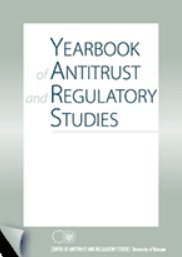The Condition of Fault in Private Enforcement of Competition Law – a Comparative Analysis of U.S. v. Polish and European Approach
The Condition of Fault in Private Enforcement of Competition Law – a Comparative Analysis of U.S. v. Polish and European Approach
Author(s): Marta MaćkiewiczSubject(s): Business Economy / Management, Civil Law, Financial Markets, EU-Legislation, Commercial Law, Comparative Law
Published by: Wydawnictwo Naukowe Wydziału Zarządzania Uniwersytetu Warszawskiego
Keywords: anonymous fault; compensatory liability; corporate fault; infringement of competition law; intent; interchange fees; negligence; private enforcement;
Summary/Abstract: The purpose of the Polish Act on Claims for Damages for Remedying the Damage Caused by Infringements of Competition Law, based on and implementing EU law – the Damages Directive, was to enable undertakings to effectively use private enforcement of their damages claims from competition law offenders. Infringement of competition law is classified as a tort according to the said Act on Claims. Therefore, the Act on Claims refers to tort liability rules. The conditions of classic tort liability in domestic law do not have exactly the same dogmatic meaning and scope as the conditions of public or private liability for the infringements of domestic and EU competition law. In practice, their application by national courts may rise many questions regarding conformity between domestic and EU law. This paper aims to analyse one of the key conditions of tort liability, that is, the fault of both the undertaking – the offenders, as well as the fault of their governing bodies and officers. If one were to understand the notion of fault within the limits laid down by civil law, and follow the literal wording of the Polish Civil Code’s provisions referring to the fault condition, the efficiency of private enforcement of damage claims arising from infringements of competition law would be doubtful. Therefore, the aim of this paper is to provide the readers with such an interpretation of the notion of fault, as a condition of liability of undertakings, that the legislative purpose of the Act on Claims is achieved and that the principles of efficiency and equivalence of the EU law are observed. In order to present a comprehensive picture, this paper will also discuss the case law of the CJEU concerning ‘anti-trust fault’, accompanied by a comparative analysis of the German and French approach to the fault condition as well as United States antitrust laws in the same area.
Journal: Yearbook of Antitrust and Regulatory Studies (YARS)
- Issue Year: 13/2020
- Issue No: 21
- Page Range: 71-97
- Page Count: 27
- Language: English

